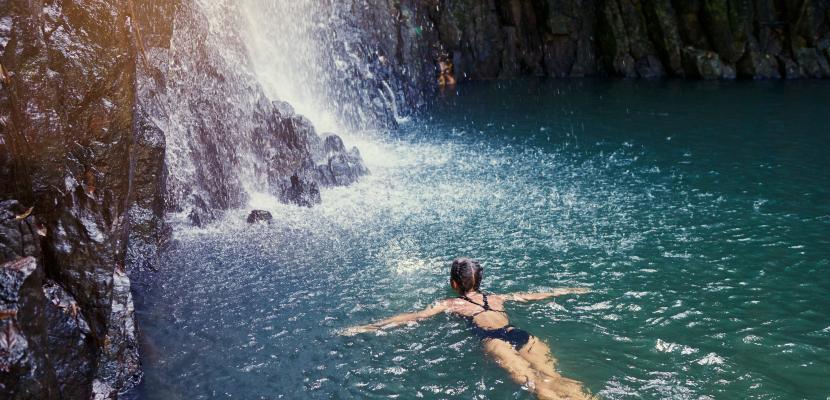
by Dr Cher McGillivray
Water is one of the most powerful things we can use to heal ourselves.
The Slovakian proverb “Pure water is the world’s first and foremost medicine” has stood the test of time.
For centuries people have observed water and its powers and even created related myths and legends.
So, here’s the bottom line – drinking five to 10 glasses per day gives water time to work its magic, in your head and in your body.
Not only is it indispensable for our health but water can significantly boost our mood.
Even five glasses a day improves anxiety and depression and regulates our body temperature and dehydration.
If we don’t drink enough, say only two glasses a day, the danger of getting dehydrated increases our risk of depression fivefold.
Research shows that for some of us, just being in nature, walking along creekside paths, seeing and smelling water, even looking at it, has positive effects on our bodies and emotions.
One of the best health tips for those of us lucky enough to live on the Gold Coast is to take that trip, drive along that beach or canal road, and, if you can, even jump in.

It’s quite extraordinary what happens when we immerse ourselves in water.
It slows our heart rate, drops our body temperature and improves our brain function and our mood when we’re really stressed.
It’s a drug-free, easily accessible and free treatment psychologists can prescribe to reduce depression and anxiety.
Now let’s look at something a little more extreme – people plunging into ice baths.
I think it’s inspiring; you might think it’s crazy.
Ice baths are becoming more popular these days, particularly for athletes … or fund-raising charities.
For athletes, it’s about muscle recovery. Just 10 minutes a day in an ice bath (if you can handle it) can boost your immune system.
That cold shock gives us a major anti-inflammatory boost for our physical health, and a super kick for our mental health – the perfect non-drug therapy in just 10 minutes.
If you can’t get into an ice bath, jump in the shower and turn on the cold water for three minutes before you get out.
You might have seen the Winter Solstice Swim in Tasmania – an event that involves swimming in very cold water during the shortest day of the year.
Research suggests that, for these swimmers, cold water immersion can stimulate the production of endorphins, the body’s natural painkillers and mood elevators, which can help alleviate symptoms of depression and anxiety.
If you watch them after the swim they all emerge on a high. But take heart. There’s good news if you can’t stand the cold.
A study by Carter et al showed just immersing yourself in water – in the pool, at the beach, in the creek – increases blood flow to the brain.
This improves memory, mood, concentration and cognitive function in general.
Studies have also shown that swimming can reverse brain damage from stress via hippocampal neurogenesis (that is, the creation of new neurons).
Findings from a systematic review revealed increased water consumption also had a weight-reduction effect and improved some cases of diabetes.
But if you replaced that water with sugar-sweetened beverages there are worrying links to obesity, diabetes, and a higher risk for mental disorders, especially depression.
Furthermore, water facilitates signalling pathways and nutrients delivery to the brain, removes toxins and inflammatory markers and provides energy sources for the brain, thereby improving brain function.
So five glasses of water a day might also make us smarter.
We’re on the Gold Coast with beaches, creeks and rivers and the Hinterland at our fingertips, so there’s no excuse. Go find your water.
Dr Cher McGillivray is an Assistant Professor at Bond University and registered Clinical Psychologist, researcher, speaker, writer and media commentator on children, families and community wellbeing. She focuses on positive social change and advocates for the rights and wellbeing of children and restoring familial foundations for families.

